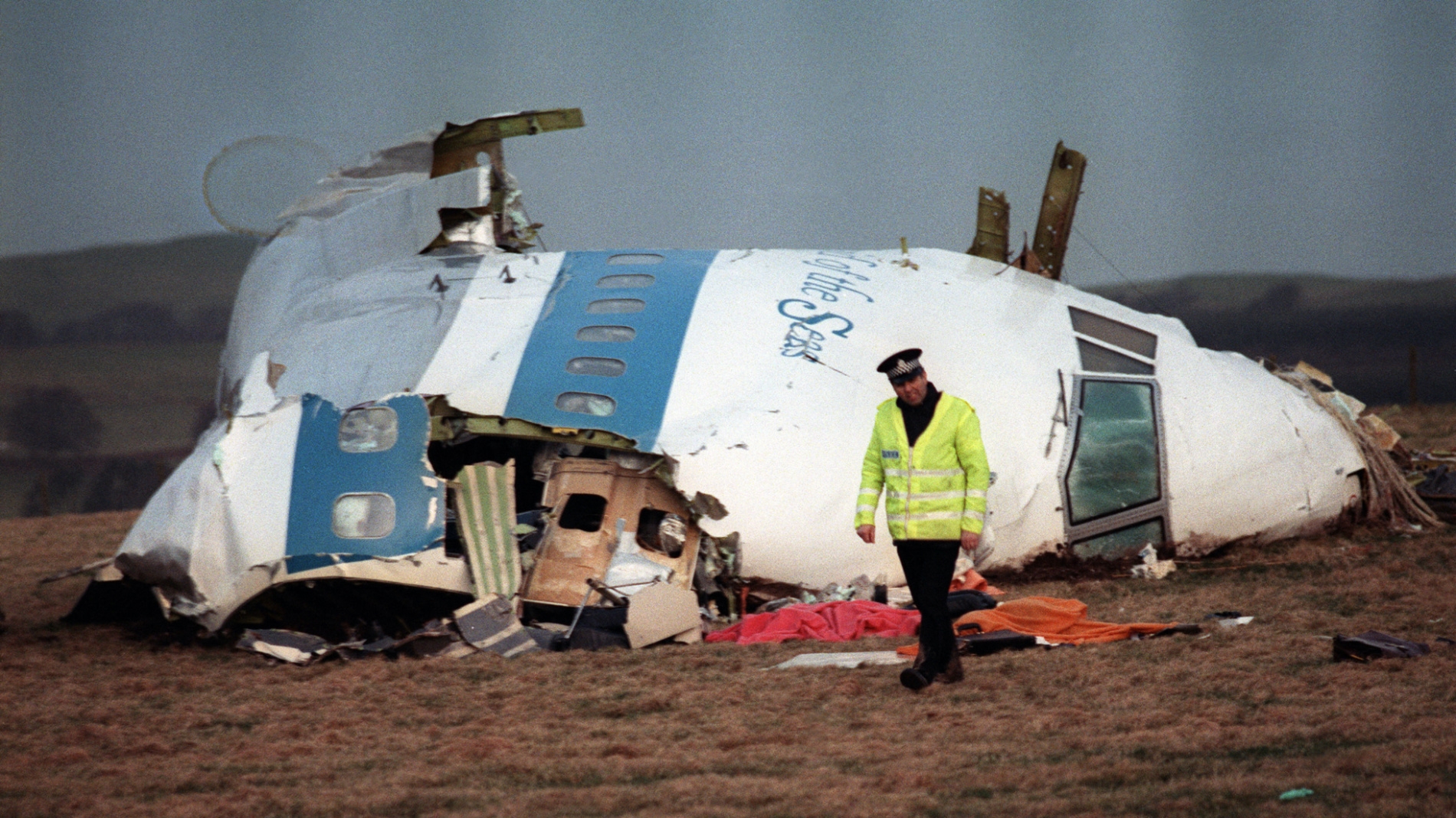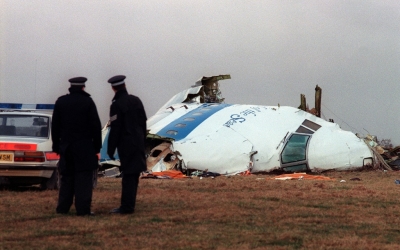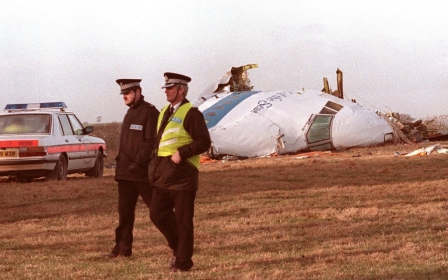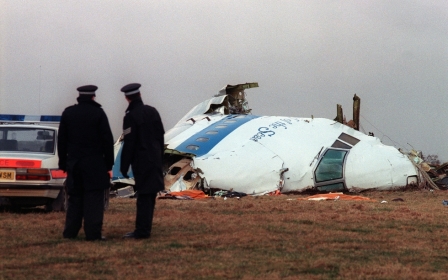Libyan suspect of Lockerbie bombing in US custody

A Libyan man accused of making the bomb that destroyed Pan Am flight 103 over Lockerbie in Scotland in 1988 has been taken into US custody, the Justice Department said on Sunday.
The US confirmed an earlier announcement by Scottish prosecutors that Abu Agila Mohammed Masud was taken in and that the families of the victims had been notified.
In 2020, US authorities charged Masud with the Lockerbie bombing that killed 259 people on board the Boeing 747, including 190 Americans, and 11 people on the ground.
A US Justice Department spokesperson on Sunday said that Masud was due to make an initial appearance in the US District Court for the District of Columbia without specifying when.
"Scottish prosecutors and police, working with the UK government and US colleagues, will continue to pursue this investigation, with the sole aim of bringing those who acted along with [Abdel-Baset Ali Mohmet] al-Megrahi to justice," a spokesperson for Scotland's Crown Office and Procurator Fiscal Service said.
Megrahi, a former Libyan intelligence officer, was so far the only suspect to have been convicted over Lockerbie bombing.
Neither the Scottish prosecutors nor the US Justice Department detail how Masud was caught, but the BBC said a Libyan militia group kidnapped him last year.
The US charges against Masud in 2020 included destroying an aircraft and a vehicle resulting in death. FBI Agent Rachel Otto said in an affidavit at the time that the accused had admitted to building the bomb that was used to blow up the Pan Am flight over the town of Lockerbie in Scotland.
According to the US indictment, Masud was reportedly a leading bombmaker for Libyan ruler Muammar Gaddafi and had assembled and programmed the Lockerbie bomb.
The investigation was relaunched in 2016 when Washington learned of his arrest after Gaddafi's ouster and death in 2011, and his reported confession to Libyan authorities in 2012 that he was involved in the attack.
Libya took blame for bombing in 2003
Masud's arrest and court appearance opens a fresh chapter in a terrorism case that has spanned over three decades.
In 1991, three years after the bombing, Washington charged Libyan intelligence operatives Megrahi and Lamen Khalifa Fhimah with roles in the attack.
Libya did not hand the suspects to either Scottish or American custody, leading the UN Security Council to impose arms sales and air travel sanctions against the country in 1992.
In 2001, after a decade of struggling with Libyan authorities to extradite the individuals, Tripoli handed the two men over to the Netherlands, where they would be tried under Scottish law.
Megrahi was given a life sentence but was released in 2009 on humanitarian grounds and died a few years later in Tripoli. Fhimah was acquitted by the court.
The sanctions were lifted after Libya arranged a $2.7bn compensation deal with the victims' families and formally accepted responsibility for the bombing.
Middle East Eye delivers independent and unrivalled coverage and analysis of the Middle East, North Africa and beyond. To learn more about republishing this content and the associated fees, please fill out this form. More about MEE can be found here.





